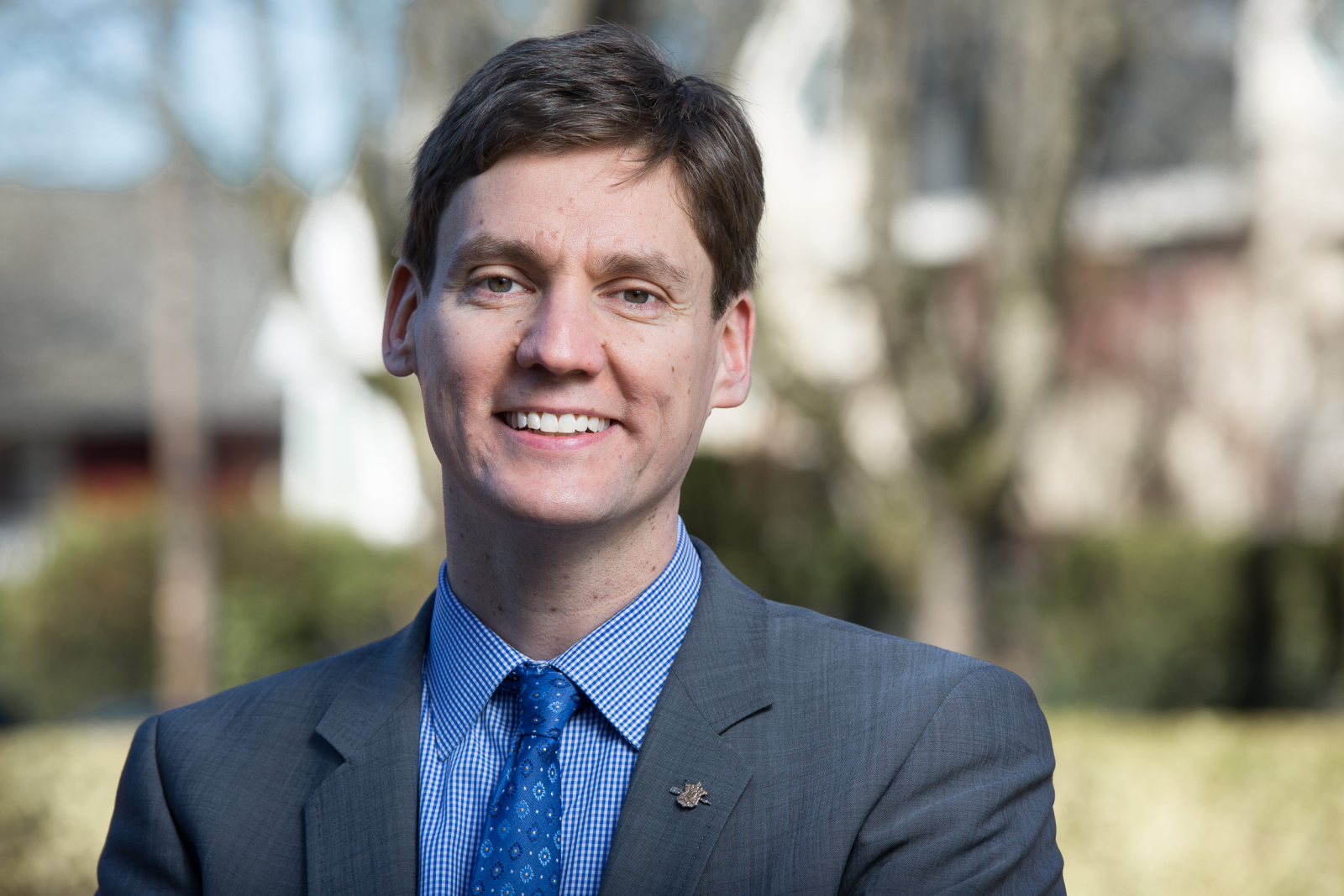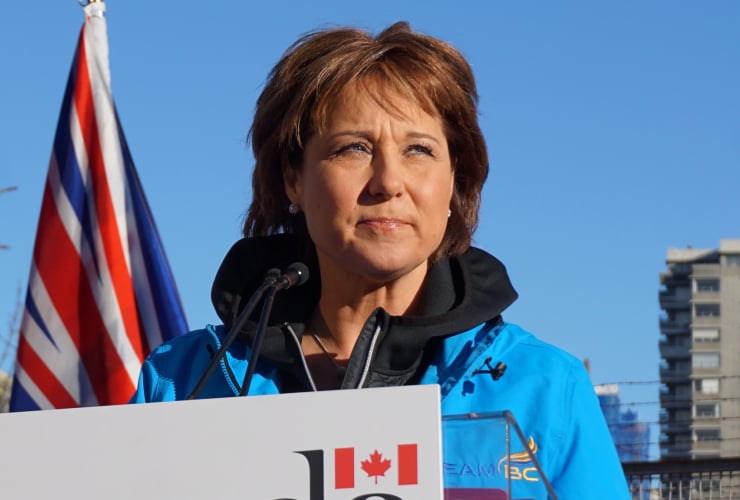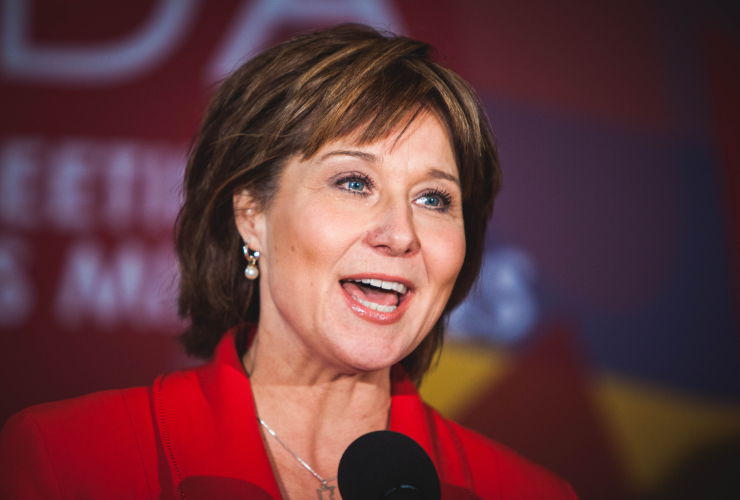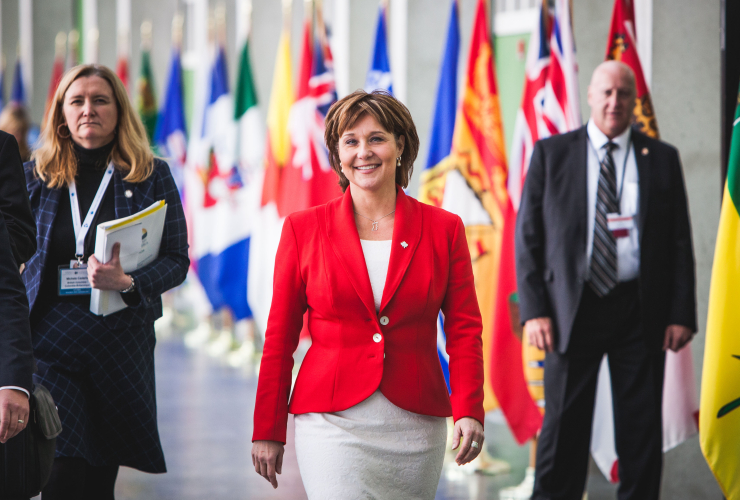Over the weekend, I spoke with BC NDP MLA David Eby about controversial political fundraising practices in British Columbia, which have recently earned the province its New York Times nickname, "The 'Wild West' of Canadian Political Cash." It's worth noting that Eby, considered a champion of affordable housing rights in the real estate hotbed of Vancouver, defeated B.C. Premier Christy Clark in her home riding during the last election. Of course, as a star MLA of the Official Opposition, Eby isn't impartial. But he's not alone in thinking that the province's ruling party, the BC Liberals, are banking on a constituency that is clueless about the influence of big gas and oil money in a political landscape that is friendly to LNG proposals, crude oil and natural gas pipelines galore.
Last week, Clark announced plans to create an independent, expert panel to review the political fundraising rules that have allowed her to amass a war chest of roughly $12 million before she faces a provincial election in May. But that panel, won't be appointed until after the election, which has Eby wondering if Clark is underestimating the voting public. Here's what the MLA had to say.

David Eby, MLA, courtesy of David Eby's website
Is Premier Clark's plan to appoint a panel to look into political donations rules after the election a little after-the-fact?
"Christy Clark and her government mistakenly think the public don’t care, or don’t understand, what is happening with political donations in B.C. She’s said as much — she doesn’t think big money buying access to government is an issue people care about. She feels that her taking $300,000 in donations (annual stipends) home with her was just ‘a distraction.’ I think, and hope, she’s wrong. Voters surely understand that this panel isn’t an answer, it’s just a way to kick the ball down the field and hope they can run another four years of unlimited political donations from wealthy friends and insiders to fund the next campaign."
Is there undue influence in B.C. by oil and gas companies?
"Just before the last election, Christy wasn’t hanging out in Vancouver-Point Grey, her constituency (at the time). Instead, she went to Calgary to fundraise from wealthy oil interests in that city. Who knows what promises and commitments were made? What we do know is that she took half a million dollars in donations from companies shipping product through the Kinder Morgan pipeline project, and from the pipeline company itself. We also know that she approved that pipeline expansion project without holding an independent public environmental assessment process for that project for our province’s residents and businesses to weigh in on. That’s one of the reasons her government is being sued right now by Democracy Watch in B.C. Supreme Court — it’s a case to watch."
How are political donations impacting policy, in your opinion?
"In their public inquiry into corruption, Quebec found that despite having strict donation limits and rules in place for decades, companies worked overtime to secretly funnel money to political campaigns. Why would they do this? Because those companies, like companies in B.C., understand that money buys influence. If Quebec had a corruption problem with strict limitations on donations, imagine the issue that B.C. faces, where the right amount of money can buy a dinner meeting with the premier.
"The B.C. government’s main advertising firm for public communications is the same firm hosting the premier’s major April fundraiser — the Pace Group. Is this the best company to do the advertising, or is it just that they’re the group friendliest to the government’s fundraising efforts? You could ask a similar question about the appointment of Bob Rennie, the premier’s fundraiser in chief*, to the board of BC Housing."
How would you describe the situation?
"Big money in politics in B.C. is completely out of control. From a premier who filled her pockets with political donations to the tune of $300,000 in extra salary, to a political party that is willing to sell small group access to key government decision-makers, there’s no win for a public increasingly concerned that their voices don’t matter anymore. I hope that every ad that people see reminds voters that it was paid for by someone who knew there was sufficient return on a million dollar donation to the BC Liberals to justify a seven-figure donation. Companies and the super-rich aren’t donating a million dollars to help fund better governance for B.C. They’re advancing their own interests."
What else does the public need to know about how political donations to the BC Liberal Party have been working?
"The public needs to understand that these donations have direct influence on government policy. It’s not a coincidence that Christy Clark stood by for two years while international money in Vancouver’s housing market drove detached homes up $600,000 in price, and out of the reach of the vast majority of B.C. families forever. She was listening to her major developer donors first, who were telling her that only three per cent of the residential housing market was international money. In fact, it was closer to 20 per cent.
"Unrestricted political donations cost the public real money — public contracts become more expensive, rents get higher because government won’t close rental law loopholes, government policy favours passing expenses on to the middle class through fee increases while giving breaks to friendly corporate donors."
Is there another way?
"B.C. is one of the last provinces with no restrictions on political donations. Anyone, any corporate entity, any government, anywhere in the world — even companies doing business with the provincial government — can donate unlimited amounts to political parties in B.C. This kind of system sounds bizarre even to Americans, who restrict donations to domestic sources, and say that companies doing business with government aren’t allowed to donate. That’s why B.C. was featured in the New York Times. This is a situation that doesn’t make sense to anyone except, apparently, Christy Clark and her wealthy pals."
* Bob Rennie stepped down as the head fundraiser for the BC Liberals in January 2017, having felt he "left the party in really good shape.”
Eby's reading of the corrupt
Eby's reading of the corrupt nature of B.C. "Liberalism" seems like common sense to me. Anyone who has had unruly children knows that giving them an allowance for compliance increases that compliance.






Comments